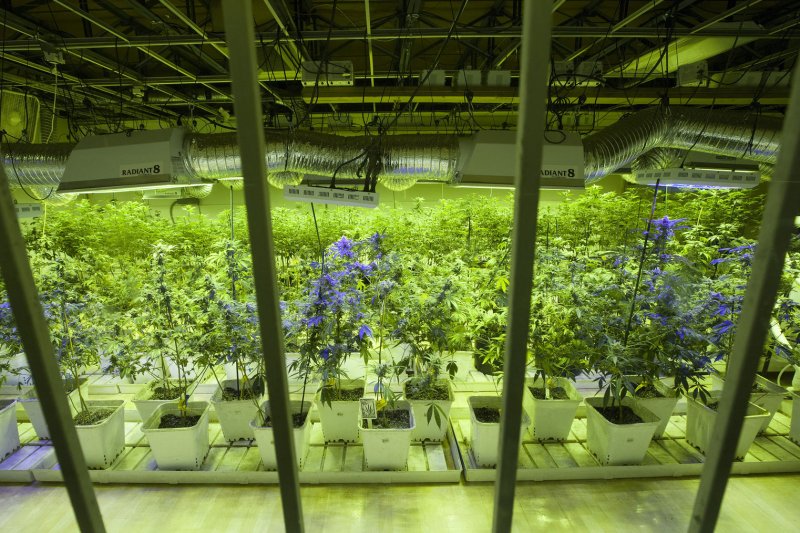Researchers suggest their finding that daily marijuana users are more likely than non-smokers to have insomnia may dispel one of the common myths about the effects of cannabis. File photo by Gary C. Caskey/UPI |
License Photo
BOSTON, Oct. 18 (UPI) -- People who smoke marijuana to help them sleep may be achieving exactly the opposite, Boston University researchers suggest in a new study.
While drowsiness and physical inactivity are often associated with marijuana use, Boston University scientists note daily smokers scored higher on the Insomnia Severity Index than moderate users did in their recent study. The findings were published in the Journal of Addictive Diseases. The study's authors say their data may help dispel a common myth about the most heavily used drug in the United States.
"Better sleep is one of the positive effects that marijuana users swear by, but there has been relatively little careful research on this topic," lead author Michael Stein said in a press release.
The study involved 98 participants; 49 who reported smoking marijuana on a daily basis, 29 who said they used the drug casually, and 20 who reported not using the drug at all. Most of the participants were in their early 20s.
Researchers examined the sleep patterns of all three groups, and found no significant differences between casual and non-users. Additionally, no meaningful differences were found in daytime sleepiness. However, 39 percent of daily users met the criteria for clinical insomnia, compared to 20 percent of nonsmokers.
"Study participants who didn't smoke every day usually smoked in the evening," Stein explained. "But once you're smoking multiple times a day, there's a greater chance that you'll report disturbed sleep. Only by stopping marijuana completely, and waiting some time without using at all, will a person be able to determine how marijuana was affecting, or not affecting, his or her sleep."
The research team is encouraging the scientific community to explore marijuana's effects on sleep patterns even further, suggesting there is a likely relationship between heavy use and sleep-related mood disorders such as anxiety.















